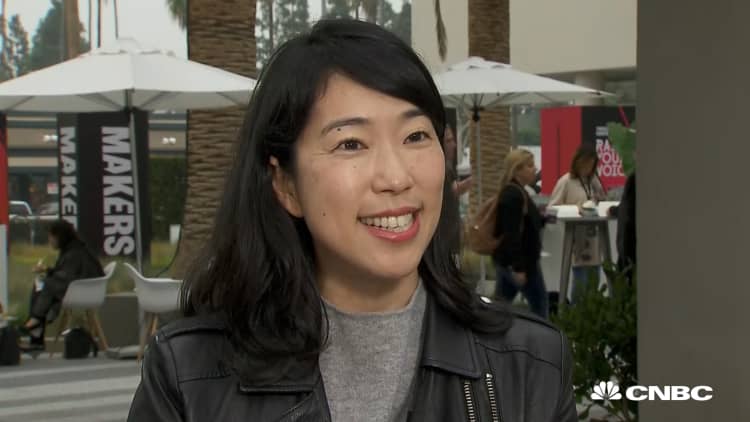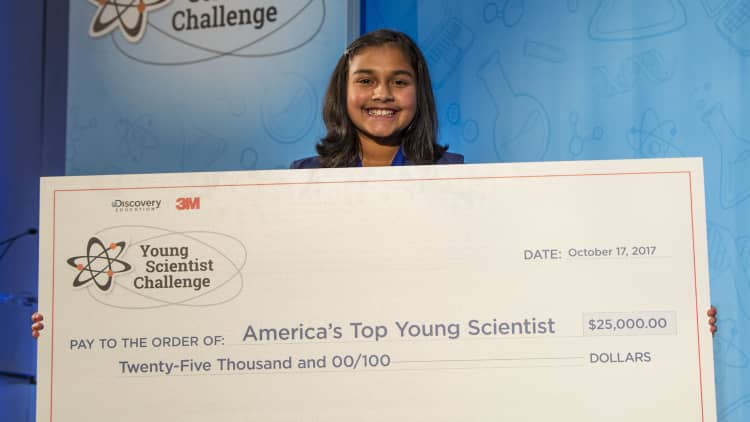Choosing the life of a solopreneur means working alone, tirelessly, long past retirement age. It means clocking in more than 40 hours per week and often working weekends, too. It means working harder than most folks who have the safety net of a company and accepting that's the price you pay for freedom.
These are things I believed when I became my own boss ten years ago. As a writer, I believed one more giant myth: that of the starving artist. Unless I was one of the lucky, famously promoted authors and editors, I could feed myself — but I couldn't expect to save, vacation or eventually retire with any measure of ease.
There I was, author of a book and founder of a business doing what I love, but working to the point of exhaustion, and more or less broke.
If I could go back in time, I'd tell myself to enroll in Jennifer Armbrust's Feminist Business School classes before launching one-on-one and small-group services, and then selling the heck out of them. I'd tell myself that with a major paradigm shift, it would, in fact, be possible to make a respectable income (say, gross $60,000 a year) while working only 15-25 hours per week.
I didn't know it then, but the same things making my business succeed were also holding me back: my most popular mentorship program for writers had a long waiting list and I regularly turned down clients seeking a full manuscript review. My systems were stagnant. They couldn't scale. And while at first I thought the "solution" was simply to provide more offerings at different price points that, too, quickly became unsustainable.
It was nice to be in demand, but that didn't soften the blow of turning people away that wanted to pay me to do what I love. So I contacted Jennifer Armbrust, Founder of SISTER, and enrolled in every Feminist Business School class offered for one year.
I learned that what mattered most wasn't my profit margin, but rather, the values of the economy I was operating within. "If capitalism is an economy that values masculine traits, what could another economy look like?" Armbrust said in an interview with CoCommercial's Tara Gentile. "I think a feminine economy might include resourcefulness, mindfulness, gratitude, integrity, honesty, connecting with nature, care, asking questions, sustainability, intimacy, embodiment, generosity, ease, collaboration, interdependence, cyclical growth, and abundance consciousness."
A little less than a year into classes, I launched a new experiment called Airstream Dispatches that led to $9,000 gross income for six hours of live contact time with clients. I hired a project manager for IT and marketing needs and nearly tripled my enrollment for an annual online class that grossed $11,000 in five weeks. I lowered my weekly hours significantly and increased my hourly wage. And yes, I experimented. Played. Had fun.

When it was all said and done, I estimated that it cost approximately $4,000 to run both programs (including ad costs, program manager fees, office expenses, etc.). After taxes, this left me with approximately $12,500. It took me roughly 45 hours to deliver the content for both of these offerings, and an additional 20 hours to lay the groundwork (develop materials, create web pages, etc.) and about 20 more hours to troubleshoot and deal with some unexpected IT challenges behind the scenes. This meant I could pay myself about $100/hour and save or re-invest almost $50 more dollars per each hour that I worked.
The best part? Airstream Dispatches was structured around one, hour-long, monthly webinar that I was already offering to a small group of core writers enrolled in my Mentorship Program. The prep I did for the core writers could suddenly scale without diluting the quality of instruction. For the first hour of each monthly webinar, thirty or so writers joined a livestream call for a craft lesson, book discussion, prompt and Q&A — that's what Airstream Dispatches promised (and what it still promises today). The next 30 minutes of the call, only the core eight writers remained and we talked privately about their writing submissions.
When it came to day-to-day operations, what all that looked like was this: I sat down at my desk each day with the intention of valuing feminine principles, and discovered that, as Armbrust teaches, the microeconomy of my business did indeed shift. Airstream Dispatches has a low price point and contact hours, embodies my core values, and fulfills genuine human needs to create and connect. Adding a project manager and advertising meant I could increase enrollment without adding hours to my workweek.
Putting feminine principles first enabled me to work 5-10 fewer hours per week, pay myself 25-200 percent more and expand my audience by 33 percent in six months.Katey SchultzFounder of Maximum Impact, a mentoring service for writers
These shifts have allowed me to simplify and scale, still meeting my company's promise to provide transformative online curricula that helps writers articulate precise meaning in their work. In short: Putting feminine principles first enabled me to work five to 10 fewer hours per week, pay myself 25-200 percent more per hour, depending on the program, and expand my audience by 33 percent in 6 months.
Heading into a new season for my business this fall, I'm happy to report I took many weeks of the summer off and am on track to meet my goals of working less and earning more, while still engaging in meaningful work. That feels incredible — and not because it's "pulling one over" on the masculine economy or because money is moving in positive ways. That rush comes from the knowledge that thriving as a solopreneur in love with her work doesn't have to be unsustainable. It really is possible.
Katey Schultz is the Founder of Maximum Impact, a mentoring service for writers, and the author of Flashes of War, an award-winning short story collection.
Like this story? Subscribe to CNBC Make It on YouTube!
Don't miss:



